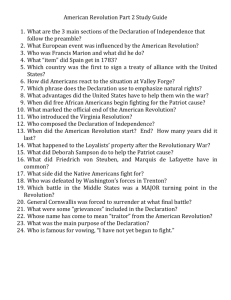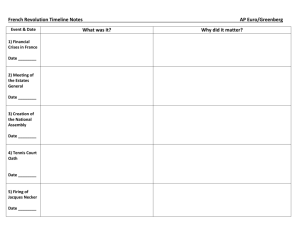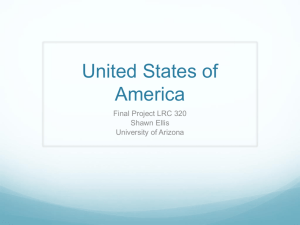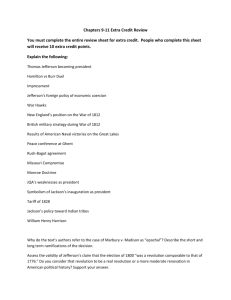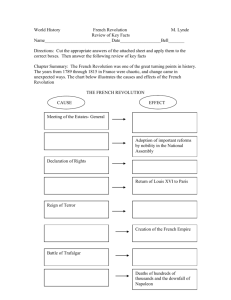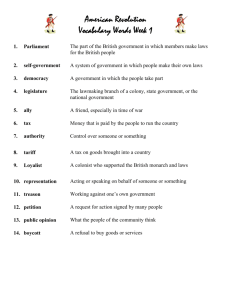Early Government
advertisement
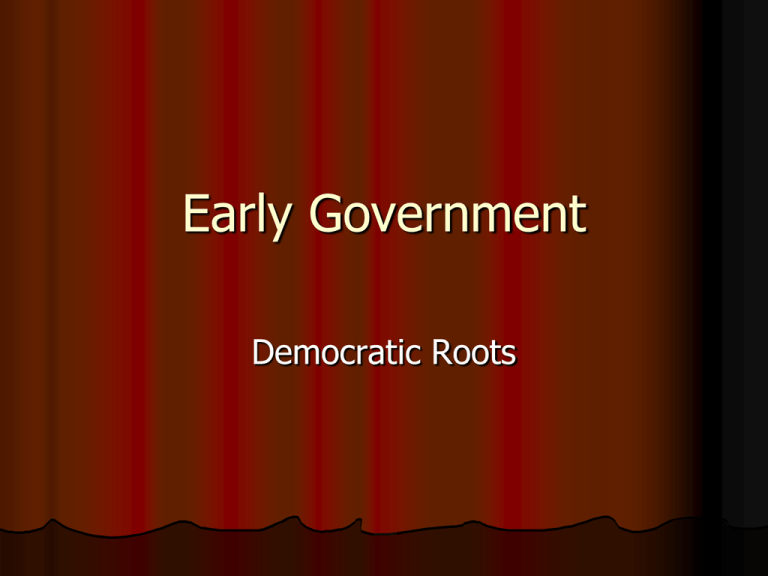
Early Government Democratic Roots Athens and Rome Athens: Republic: Leaders elected by male citizens (US:______________________________) Direct democracy: All male citizens were members of the legislative branch called the Assembly (US: Legislative branch = _______) Jury System: male citizens were chosen in large numbers by lot to serve as jurors to try cases Salaries for Public Officials: enabled poor citizens to take part in government service (could leave their jobs) Athens and Rome Rome: Veto: elected leaders could veto (______) laws passed by the government (checks and balances) Representative democracy: Citizens chose other citizens to represent them in the gov’t assemblies Roman Law (Codified Law): by writing laws down (all areas of society) in a orderly manner, all citizens can know them Consistent but flexible, and impartial Enlightenment 17th and 18th Century produced a new way of thinking/new philosophies on life and gov’t John Locke: natural rights (life, liberty, and property); gov’t gets it’s power from the people (social contract); gov’t could be changed if it doesn’t meet the people’s need Enlightenment Voltaire: Natural rights and religious freedom Montesquieu: Gov’t should have limits; separation of powers (3 branches: Legislative, Executive, Judicial) Rousseau: people give the gov’t it’s power Democracies/Republics in the New World Virginia House of Burgesses: started in 1619 1st such assembly in America Legislative body elected by the people Meet once a year in Jamestown Elected body was called burgesses Democracies/Republics in the New World Mayflower Compact Signed by males on the Mayflower Needed organization before Pilgrims formed Plymouth Set up a gov’t structure American Revolution Events leading towards war: Taxes and Acts: Sugar Act Stamp Act (No Taxation without Representation) Townsend Act Boston Massacre Tea Act (Boston Tea Party) “Intolerable Acts” (took away local gov’t) American Revolution Declaring War: First Continental Congress (1974): met in Philly to agree to fight for American rights and liberty for the colonies Patrick Henry “..give me liberty or give me death.” Declaration of Independence: Thomas Jefferson 1- Reasons for Separation (win public support/propaganda against the king) 2- Theory of Gov’t (unalienable rights and natural rights/ gov’t protects these rights and gets its power from the people) 3- Declaration of War American Revolution Declaration cont…. July 2, 1776 > 2nd Continental Congress met to vote on Declaration Debated Jefferson’s document (Jefferson almost left the convention) July 4, 1776 > ratification of Declaration with some changes 12-0 (New York makes it 13-0 on July 15) August 2, 1776 > signing of the Declaration “we all must hang together or we shall hang separately” Ben Franklin Battles of the Revolution Lexington and Concord (1775) > British march to destroy Patriots’ supply of ammunition > Paul Revere’s ride > “shot heard ‘round the world Battles of the Revolution Trenton and Princeton (1777) > Washington crosses Delaware River to surprise Redcoats > British withdraw from western New Jersey Saratoga (1777) > turning point of the Revolution > patriots’ stop two offensives by British > were outnumbered> counterattack and force British army to surrender Yorktown (1781) > official surrender of British army ending Revolution

